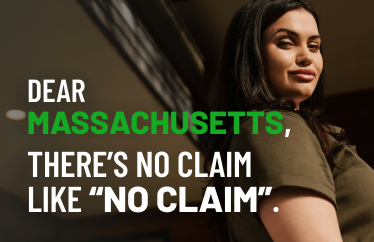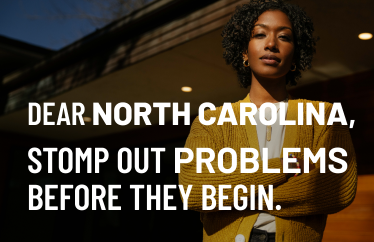Homeowners insurance coverage is a valuable product that helps you protect your property against loss, especially if you’re one of the more than 60% of homeowners who carry a home mortgage loan. Most homeowners opt to buy this coverage, but is homeowners insurance required?
Read on to learn more about homeowners insurance requirements, what this coverage provides, and what happens if you don't have home insurance and a loss occurs.
Key takeaways
- There is no legal requirement to purchase homeowners insurance coverage.
- Whether you are required to have homeowners insurance or not mostly hinges on whether you have a remaining mortgage loan balance.
- Mortgage lenders require homeowners insurance to protect their financial interest in a property if it were to be damaged or destroyed.
- Even if you fully own your home (no mortgage) and aren’t required to buy coverage, a homeowners insurance policy is still a wise financial decision.
- Without homeowners insurance, you’ll be on the hook for any and all damages to the home or your personal property if a loss were to occur.
Do you need homeowners insurance?
For some homeowners, buying insurance coverage for a property is optional. For this reason, the question isn't always, do you have to have homeowners insurance? Rather, do you need home insurance to protect your assets best? And in most cases, the answer is yes.
The vast majority of homeowners need, or at least could be better protected with, a home insurance policy. This coverage can offer financial protection in case of a covered loss, such as a house fire, tornado, or windstorm such as a tornado.
Suppose you could not cover the cost of rebuilding or repairing your home or even replacing your belongings within the home after a disaster. In that case, you may really want to consider buying homeowners insurance. Since many types of homeowners insurance also provide personal liability protection, a policy can help protect your assets from litigation if someone is injured on your property.
Why is this important? According to the Insurance Information Institute, a liability claim is filed against every one in 1,015 homeowners policies related to the cost of lawsuits for property damage or physical injuries. In 2022, about 16 out of every 1,000 people were injured in homes, and that same year, there were 128,800 deaths from preventable injuries.
Do mortgage lenders require insurance?
Even if you decide that you don’t want or need homeowners insurance, your mortgage lender will not give you a choice. That’s because the lender technically owns the asset until the debt is satisfied, and homeowners insurance helps protect their financial interest in the meantime.
Is homeowners insurance required by law? No, it’s not. But is homeowners insurance required when you have a home mortgage loan? Yes, though it’s important to check with your lender to understand your exact obligations.
How homeowners insurance works
Homeowner insurance coverage is designed to protect homeowners against unforeseen losses and damages in exchange for monthly premiums. Typically, home insurance covers damage caused by perils like theft, fires, storms, and accidents.
Additional coverage may be necessary for floods and earthquakes, particularly if you live in an area prone to these sorts of natural disasters. Homeowners insurance also offers protection if someone injures themselves while they’re in your home or on your property.
After filing an eligible claim, your home insurance coverage will pay to repair or replace any eligible belongings or areas of your home up to your policy’s coverage limits. If your home is totally destroyed, it will pay to rebuild or replace your house and any belongings, minus your deductible.
What happens if you don’t have homeowners insurance?
Now that we’ve covered who is and isn’t required to have homeowners insurance, and how this type of coverage works, it’s important to understand what happens if you don’t opt to buy a policy.
- Suppose you don't have homeowners insurance coverage, and your property is damaged by a covered peril. In that case, you'll be stuck paying for all repairs to the property and any affected personal belongings.
- Without homeowners insurance coverage, you will have no recourse or financial support if your home were destroyed by a covered peril, such as a fire. You’ll be responsible for rebuilding the property, replacing your stuff, and still satisfying your remaining mortgage loan balance (if applicable).
- If your mortgage lender finds out that you don’t have adequate homeowners insurance in place, they may charge you for force-placed coverage. While you’ll still foot the bill for this coverage, it will typically only protect the lender and their financial interests.
- You could be sued if you or someone in your family is responsible for the bodily injury of or property damage to another. In this case, your homeowners insurance policy’s personal liability coverage can help pay for your legal expenses as well as reimburse the individual for their property damages, medical costs, lost wages, and other expenses.
What kind of homeowners insurance do I need?
There are many different types of homeowners insurance available. The right one for you depends on the kind of home you own, where you live, and how much coverage you want.
For example, there are different policies for owning a condominium, a single-family home, or a rental property. You’ll also find different levels of coverage offered by different policies; the most common type, HO-3 coverage, covers all perils not specifically excluded, while HO-1 only covers select perils.
When do I need to get homeowners insurance?
Not sure why you need homeowners insurance or when to buy? There are three primary situations.
You’ll need to get home insurance coverage if you have a home mortgage loan balance. Lenders typically require coverage to protect their financial interest in the property, in case it is damaged or a total loss.
You may be asking, Do I need homeowners insurance if I don’t have a mortgage? Well, if you own your home outright but can’t afford to replace, rebuild, or repair the dwelling and your belongings out of pocket after a loss, you should absolutely consider buying coverage.
Even if you own your home and could technically cover the expense of a total loss, paying for a home insurance policy may still be the wise financial choice.
Last but not least, homeowners insurance can help protect you against liability. According to the Insurance Information Institute (III), between 2% and 3% of all homeowners claims each year are related to liability. This aspect of your policy can help cover bodily injuries, property damage, medical payments, and even legal expenses if you or someone in your family harms another.
How much you should expect to pay
Homeowners spend an average of $1,411 on home insurance premiums each year, according to recent data from the National Association of Insurance Commissioners (NAIC). However, insurance premiums can vary depending on a number of different factors.
Your insurance company will calculate your policy premiums according to considerations like:
- Where your property is located
- The age and condition of your home
- Which type of policy you buy
- The materials used to build your home
- The value of the property
- How much coverage you want
- The deductible you choose
- Your history of previous claims
- Your personal insurance score
High-risk features like pools or trampolines could increase your insurance rates. Homeowners in states that are prone to hurricanes, hail storms, tornadoes, and earthquakes tend to pay the most for home insurance. In some cases, you may even need to purchase additional coverage for these perils to protect your home properly.
You may also qualify for certain discounts, which can reduce your premiums. Homeowners insurance discounts are commonly offered to those who buy multiple policies, have home features like a security system or fire sprinklers, are affiliated with certain groups or organizations, or have no history of recent claims.
Bottom line: Yes, you need insurance
There are many reasons why having homeowners insurance coverage is critical. Insurance won’t prevent accidents from occurring, but it will provide you with a financial safety net when the unexpected happens.
Have questions about finding the right homeowners insurance policy? Want an instant quote? Speak with a Hippo specialist today.
Still have questions?
Want to know more about homeowners insurance requirements and who needs home insurance most? Here are some of the most commonly asked questions.
Do you need homeowners insurance to close on your house?
If you are buying your home with the help of a mortgage loan, you will typically be required to purchase a homeowners insurance policy. This coverage protects both you and the lender in case the house is later damaged or destroyed by a covered peril.
Do you need homeowners insurance if you don't have a mortgage?
Is home insurance required if you don’t have a mortgage? No. But it is still a very wise purchase, helping to protect you and your financial interests, even in the absence of a lender’s requirement.
Is hazard insurance the same as homeowners insurance?
Hazard insurance is one portion of a comprehensive homeowners insurance policy. This area of coverage offers protection for your physical dwelling, stepping in to repair, replace, or even rebuild the home if it’s damaged or destroyed. Other coverages offered by a homeowners policy include coverage for your personal belongings and personal liability protection.
Do I need homeowners insurance if my house is paid for?
Not all homeowners buy their house with the help of a mortgage loan. Of those who do, some may still live in that home after the loan is repaid. So, is home insurance necessary when you don’t have a mortgage loan? No, it’s not required, though buying coverage is usually still a very good idea.
What will happen if my home is damaged and I don’t have homeowners insurance?
If your home is damaged by a storm, fire, lightning, or other cause and you don’t have homeowners insurance coverage, you’ll be stuck footing the entire bill yourself. This could mean making minor repairs to your roof, rebuilding the entire house, and everything in between.
How much homeowners insurance do lenders require?
Mortgage lenders all have different rules but will usually require enough insurance to at least cover any remaining mortgage balance. (Be sure to check with your lender to see exactly what’s required.) They may also want you to insure the property for its total replacement cost in case of a complete loss. Regardless of what your lender requires, you can always add more coverage to provide you with further financial protection.




